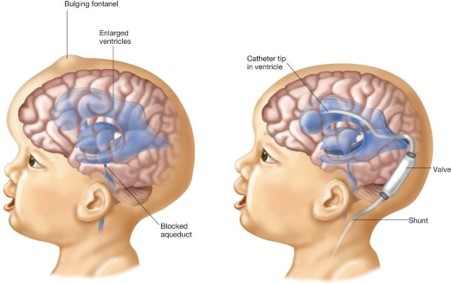Which behaviour suggests appropriate psychosocial development in the adolescent?
The adolescent is self-absorbed and self-centred and has sudden mood swings.
Adolescents move from peers and enjoy spending time with family members.
The adolescent seeks validation for socially acceptable behaviour from older adults.
Conformity with the peer group increases in late adolescence.
The Correct Answer is B
During this stage, adolescents typically experience a shift from a primary focus on family to
an increased emphasis on peer relationships. However, it is still important for adolescents to
maintain a connection with their family and enjoy spending time with family members. This
behaviour indicates a healthy balance between peer interactions and maintaining positive
relationships with family.
The adolescent is self -absorbed and self-centred and has sudden mood swings in (option A)
is incorrect because it describes behaviours associated with emotional and psychological
challenges commonly seen in adolescence but does not indicate appropriate psychosocial
development.
The adolescent seeks validation for socially acceptable behaviour from older adults in (option
C) is incorrect because seeking validation for socially acceptable behaviour from older adults,
may indicate a lack of autonomy and difficulty in developing a sense of personal identity,
which is important for healthy psychosocial development in adolescence.
Conformity with the peer group increases in late adolescence in (Option D) is incorrect
because stating that conformity with the peer group increases in late adolescence, is not
entirely accurate. While peer influence is significant during adolescence, there is also a
growing emphasis on individuality and the development of one's own identity. Adolescents
may experience a balance between conforming to certain aspects of their peer group and
asserting their unique traits and interests.
Nursing Test Bank
Naxlex Comprehensive Predictor Exams
Related Questions
Correct Answer is C
Explanation
Hydrocephalus refers to a condition characterized by an abnormal accumulation ofcerebrospinal fluid (CSF) within the ventricles of the brain. In infants, hydrocephalus cancause the head to enlarge rapidly as a result of the increased pressure exerted by theaccumulatingfluid.Thisisknownas"rapidheadgrowth."Theincreasedintracranialpressurecanlead to irritabilityand poorappetite in infants.
The distended scalp veins are another common sign of hydrocephalus. As the fluidaccumulates,itputs pressureon thebloodvessels inthe brain,causingtheveinsin thescalptobecome morevisible and distended.
Cerebral palsy in (option A) is incorrect because is a neurological disorder that affects bodymovementandmusclecoordination,butitdoesnottypicallypresentwithrapid headgrowthordistended scalp veins.
Syndrome of inappropriate antidiuretic hormone (SIADH) in (option B) is incorrect becauseitisacondition characterized byexcessivesecretionofantidiuretichormone,leadingtofluidimbalance, but it does not usually cause rapid head growth or distended scalp veins. Reye'ssyndrome (D) is a rare condition that primarily affects the liver and brain, and it does nottypicallypresent with rapid headgrowthor distended scalp veins.
Therefore, based on the signs described, hydrocephalus (C) is the most likely disorder in thiscase.Itisimportantto seekmedicalattentionpromptlyforaproperdiagnosisand appropriatemanagementofhydrocephalus in infants.

Correct Answer is A
Explanation
A change in status that should alert the nurse to increased intracranial pressure (ICP) in a child with a head injury is confusion and altered mental status. As intracranial pressure increases, it can affect brain function and lead to neurological changes, including confusion, disorientation, irritability, decreased level of consciousness, or other alterations in mental status. These changes indicate that the brain is being compressed and compromised, and immediate intervention is required.
Option B, increased diastolic pressure with narrowing pulse pressure in (option B) is incorrect because it, can be a sign of increased ICP, but it is not specific to head injuries and can be influenced by other factors such as pain, anxiety, or systemic conditions. It is important to consider the overall hemodynamic status of the child and assess for additional signs and symptoms of increased ICP.
irregular, rapid heart rate in (option C), can be a sign of increased ICP, but it is not specific to head injuries and can be influenced by other factors such as pain, anxiety, or other medical conditions. Assessment of heart rate should be considered along with other signs and symptoms of increased ICP.
rapid, shallow breathing, in (option D) can be a sign of increased ICP, but it is not specific to head injuries and can be influenced by other factors such as pain, anxiety, or respiratory conditions. Respiratory assessment should be considered along with other signs and symptoms of increased ICP.
Whether you are a student looking to ace your exams or a practicing nurse seeking to enhance your expertise , our nursing education contents will empower you with the confidence and competence to make a difference in the lives of patients and become a respected leader in the healthcare field.
Visit Naxlex, invest in your future and unlock endless possibilities with our unparalleled nursing education contents today
Report Wrong Answer on the Current Question
Do you disagree with the answer? If yes, what is your expected answer? Explain.
Kindly be descriptive with the issue you are facing.
